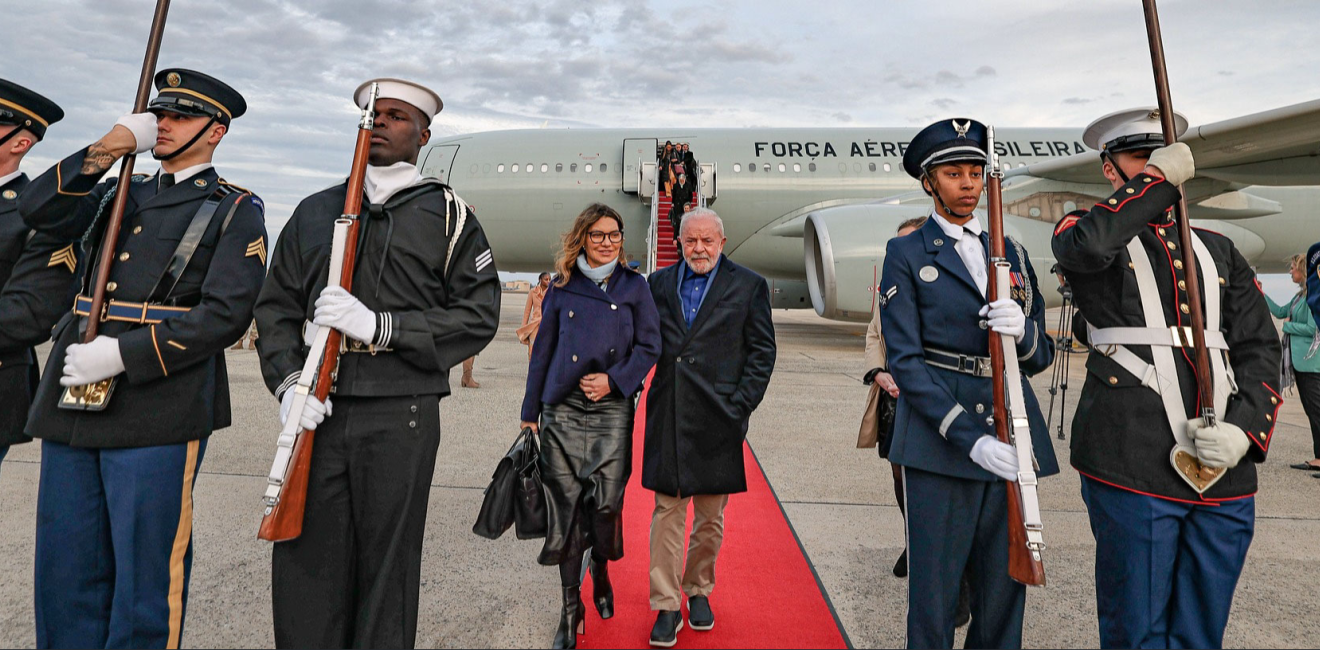What is the Importance of This Meeting?
For Lula, this meeting serves two of his goals. First, it reestablishes Brazil as an influential leader for diplomacy in the world. Secondly, it works towards Lula’s goal of becoming a leading figure in environmental diplomacy, being an active protagonist in talks on climate change and seeking to engage with other countries.
It is unlikely that there will be any significant announcements regarding trade measures during this visit. However, there may be some major announcements in the climate space, including possible contributions towards Amazon preservation.
Biden has yet to fulfill his pledge of mobilizing $20 billion to help protect the Amazon.
The Forest Act and the Amazon21 Act, through economic incentives, could encourage bilateral deforestation reduction, deter environmental destruction, and generate sustainable development in the Brazilian Amazon basin.
The primary importance of this meeting lies in its symbolism. It is Lula’s opportunity to demonstrate his commitment to democratic values.
Given the events of the past month and a half surrounding democracy in Brazil, Lula has the chance to be seen as a champion of democratic principles.
Joint Opportunities and Challenges
There will be plenty of opportunities for the two leaders to show their joint commitment to preserving democracy and tackling climate change this year. Next month, the second Summit for Democracy will be held, with both Biden and Lula expected to contribute.
Next year, the Organization of American States will meet for its tenth annual Summit of the Americas meeting. Democracy, climate change, political violence, and human rights should be on the agenda, with Brazil and the US expected to take center stage.
Lula and Biden will also cooperate to tackle what they consider to be an existential threat to their nations and the world: climate change. In mid-September, Brazil and the United States will send representatives to the SDG Conference at the United Nations, to work towards implementing the UN’s Sustainable Development Goals. In December, the COP28 will provide the opportunity for Biden and Lula to meet again and propose solutions to fight climate change and safeguard the Amazon rainforest. Possible contributions by the Biden administration towards the BNDES’ Amazon Fund would also present an opportunity for collaboration.
At home, both leaders are facing unique but similar challenges. While Biden is the subject of much hatred in the Bolsonarista camp in Brazil - even accused by some of helping support Lula’s supposed fraudulent electoral victory - Lula has received constant negative press coverage from far-right media personalities in the United States.
Similarly, both leaders were subjected to anti-democratic assaults on their nations’ capitals, one year after the other. Both Biden and Lula are investigating the attacks on their national democratic institutions while navigating complex ideological and party divides.
Moreover, in the context of the difficult relationship between ethnic minority groups and the police, both countries are also facing racial tensions and recurring popular protests. While Black Lives Matter protests were moving through the United States last summer, Lula promised to tackle police violence and racial injustice in his own country.
Still, to demonstrate his commitment to democratic principles, Lula will have to face blind spots, as well, including his tacit approval of the authoritarian regimes in Cuba and Venezuela. This stands in contrast to Biden's openly pro-democratic stance, but do not expect Lula to mince words while in Washington.
What to Expect
What can we anticipate from this gathering? Lula's schedule is quite tight, as he spends just over 24 hours in Washington.
Expectations for major announcements remain low, but it is worth noting that Lula is only a few months into his presidency. His mandate, while eventful, has only lasted a little more than 40 days.
Brazil and the United States will commemorate 200 years of diplomatic cooperation in 2024. This is an opportunity for the two presidents to build a cordial relation and usher in a new era in the pan-American relationship.










